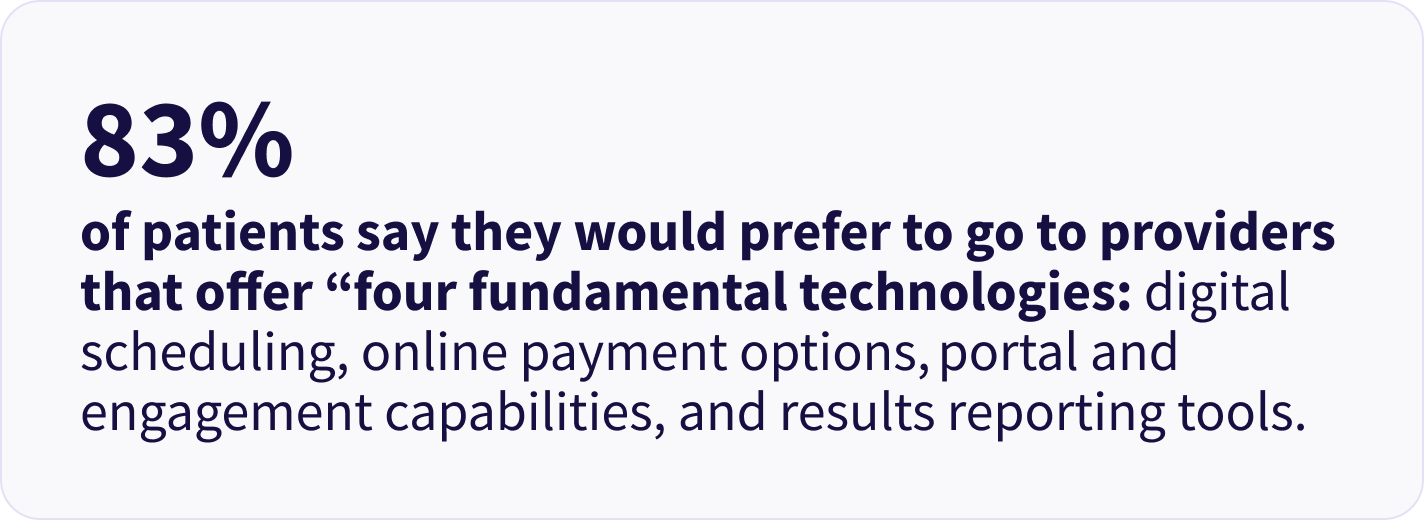As a healthcare revenue cycle management professional for the better part of the last two decades, Brent Huber has watched as year after year it's become harder for many patients to pay their bills. “It's been gradual," he says, “but everyone's seen it: Their deductibles are getting higher and higher, and in a lot of cases, their networks are getting narrower."
Huber, who is currently the director of revenue cycle at Therapeutic Associates Physical Therapy, an operation with more than 90 clinics in the Pacific Northwest, says the trend is driving many patients to ask hard financial questions before they commit to ongoing care. In general, he says, more patients are acting like “consumers" when it comes to their healthcare, not only weighing the costs and benefits of potential treatment, but asking that the transactional aspects of their visit be similar to what they experience in other areas of their lives.
“From our standpoint, that's meant that we're really trying to work with patients so they can get the care they need and be able to afford it," Huber explains. When a patient schedules an appointment, for example, someone from the front desk will determine the limitations associated with their insurance policy so they know ahead of time about any out-of-pocket expenses. Next, if the patient thinks those expenses are too high, they might talk to their therapist about adjusting their treatment plan to incorporate more home-based rehabilitation and fewer visits to the clinic.
And finally, when it comes to the issue of payment, the practice has adopted a number of technology tools designed to make the process as painless as possible. “We're offering things like flexible payment plans, the option to keep a credit card on file, and the ability to pay either through the patient portal or online, straight from an email," says Huber. Many of their patients use these tools regularly now and, he adds, “they seem to prefer them."
29% of patient payments are submitted online at Therapeutic Associates Physical Therapy
Rising costs — and expectations
Therapeutic Associates is far from the only healthcare organization that has changed its ways to meet consumer expectations. As healthcare costs have continued to climb, and as patient responsibility for those costs has gone up as well, more practices are trying to give clients what they want: better price and billing transparency, and more freedom — through technology — to choose their mode of payment.
One recent analysis by the Centers for Disease Control and Prevention found that almost half of all privately insured individuals are now enrolled in high-deductible plans. A separate study, by the Kaiser Family Foundation, revealed U.S. employer-sponsored insurance premiums for family coverage are approaching an average of nearly $19,000 per year. Perhaps not surprisingly, the shift to such plans is leading many patients to ask their providers for pricing information in advance of care. (President Trump recently signed an executive order requiring hospitals to disclose the prices they charge insurers). According to one report by the consulting firm Accenture, while only 11% of patients currently use prices to “shop around" for care, 91% say it's important for them to know their out-of-pocket costs up front.

Another recent survey, by Black Book Market Research, sheds light on patient demand for “consumer-centric" technologies and the apparent trouble many providers are having meeting their expectations: More than 80% of patients say they would prefer to go to providers that offer “four fundamental technologies": digital scheduling, online payment options, portal and engagement capabilities, and results reporting tools. And yet most of the hospitals and physicians the researchers polled — 91% of providers overall — indicated they had yet to put such technologies in place.
Good for consumers, good for business
One medical practice that has invested in tools meant to enhance the consumer experience is Azalea Orthopedics, based in Tyler, Texas. Azalea serves a wide range of patients at its 10 clinics throughout the eastern part of the state, including what CEO Anthony Brooks describes as a “huge" Medicare population. “Most of our patients are computer savvy now, regardless of their generation," he says. “They're doing research on Healthgrades, going to our website and our social platforms — they're reading our blog and asking questions online."
Azalea is an elective practice, Brooks notes, and many of its patients have concerns about cost. They want to know what their insurance will cover, and often they're interested in payment-plan options that could potentially make it easier for them to afford their treatment. With all of that in mind, Azalea's staff uses an automated system to verify insurance eligibility, “and we do a lot of analysis around our estimates," he says. They offer their patients emailed statements, have introduced a card-on-file process, and they take online payments. “We try to make it just like you're paying your cable bill, a really easy and quick transaction."
Brooks says it's hard to know exactly how their billing and payment tools have impacted Azalea's collections, but he can say they're saving money by sending fewer paper statements and spending less time handling remittances over the phone. Patient consumerism, he adds, seems to be good for business. “And I think it will probably continue to be good as long as we're doing our job right."
Chris Hayhurst is a frequent contributor to athenahealth's Knowledge Hub.












